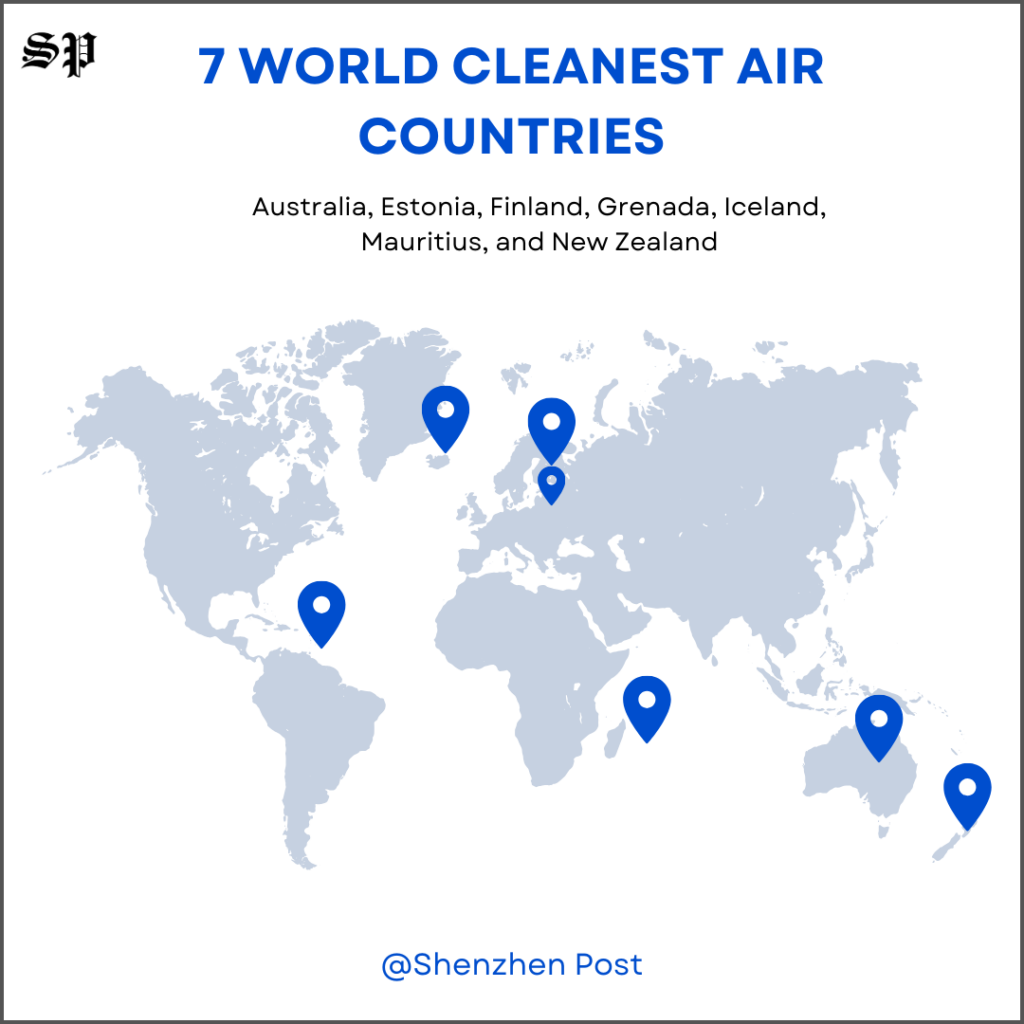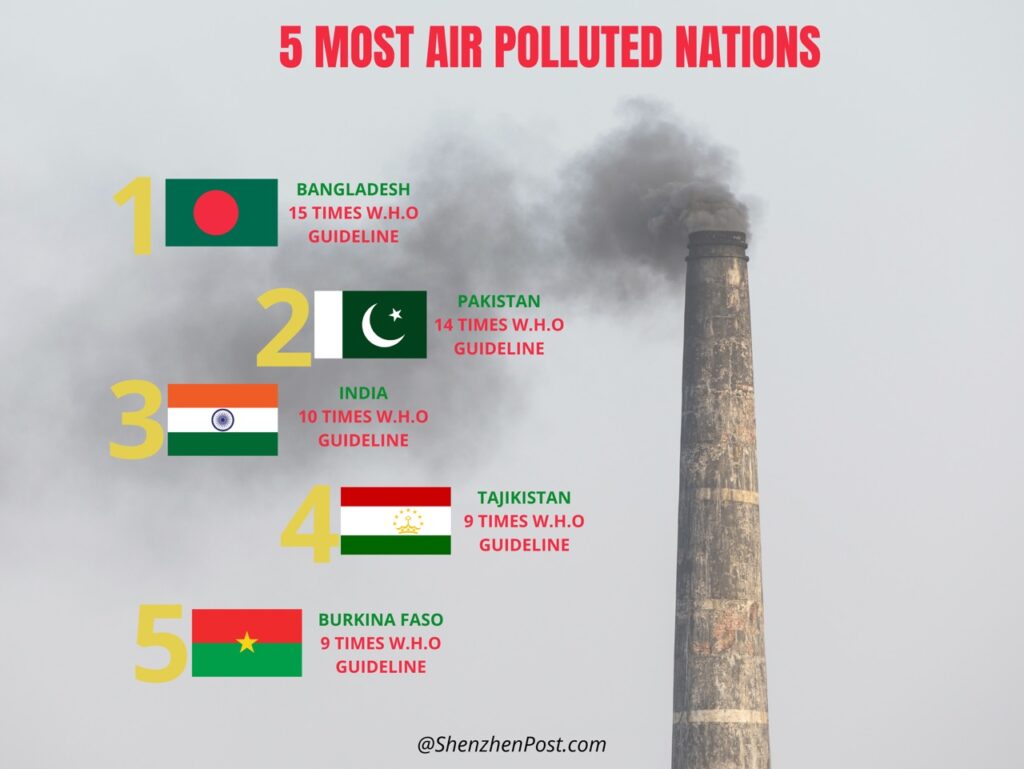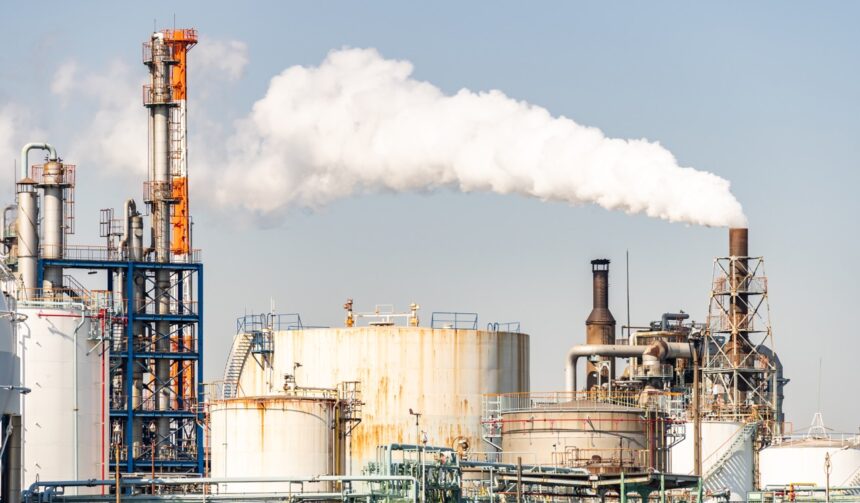A new report by the World Health Organization (WHO) paints a grim picture: unsafe air is the norm, not the exception, for most countries. The study, analyzing pollution levels across 134 nations, reveals a disturbing truth – only seven countries offer their citizens clean air to breathe.
These fortunate few – Australia, Estonia, Finland, Grenada, Iceland, Mauritius, and New Zealand – stand in stark contrast to the rest of the world. They are outliers in a sea of toxic air, a consequence borne by billions forced to inhale invisible dangers every day.

This isn’t just about discomfort. Air pollution is the world’s leading environmental killer, claiming an estimated seven million lives annually – more than AIDS and malaria combined. The burden falls heaviest on Asia and Africa, ironically, the most populous regions. Countries like Bangladesh, Pakistan, and India lead the pack in air pollution, with levels exceeding WHO guidelines by a staggering 10 to 15 times.

The problem extends beyond national borders. A separate WHO analysis of 7,800 cities worldwide identified a shocking trend: 99 of the 100 most polluted cities are concentrated in Asia, with a staggering 83 located within India alone. Begusarai, a city of half a million in the Indian state of Bihar, takes the dubious honor of being the world’s most polluted, with air quality exceeding WHO safety limits by a factor of 23.
While the situation in India is particularly alarming, China, also faces challenges. After years of progress in combating pollution, China saw a concerning 6.3% increase in 2023, attributed to a post-pandemic economic resurgence.
The culprits behind this global crisis are multifaceted. Vehicle emissions, crop burning, and wildfires contribute significantly, particularly in Asia, Africa, and North America. However, the biggest villain is fossil fuel emissions, responsible for one in five deaths worldwide.
Despite extensive research and international dialogue, a definitive solution to air pollution remains elusive. Billions continue to gasp for breath, their health at risk from the very air they need to survive. This is a stark reminder that progress, particularly economic growth, cannot come at the expense of our health and environment.

